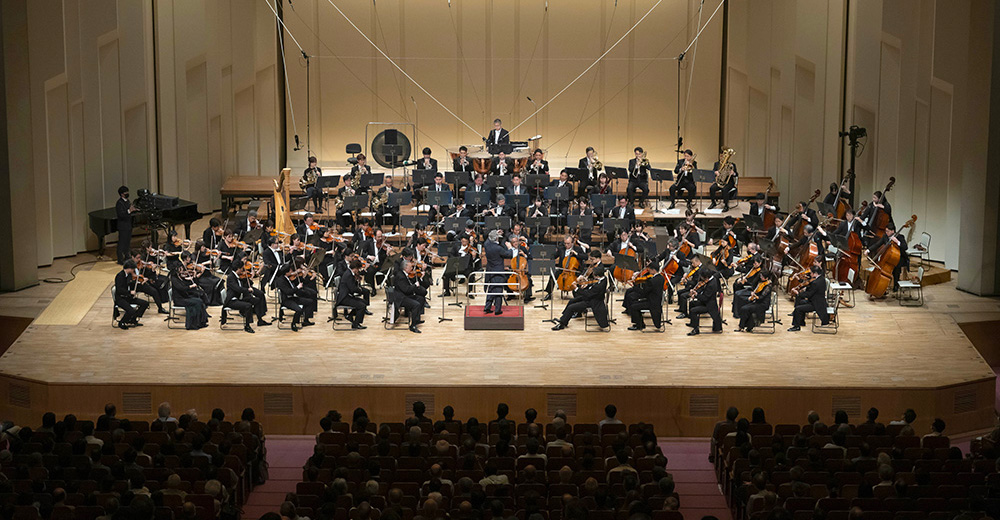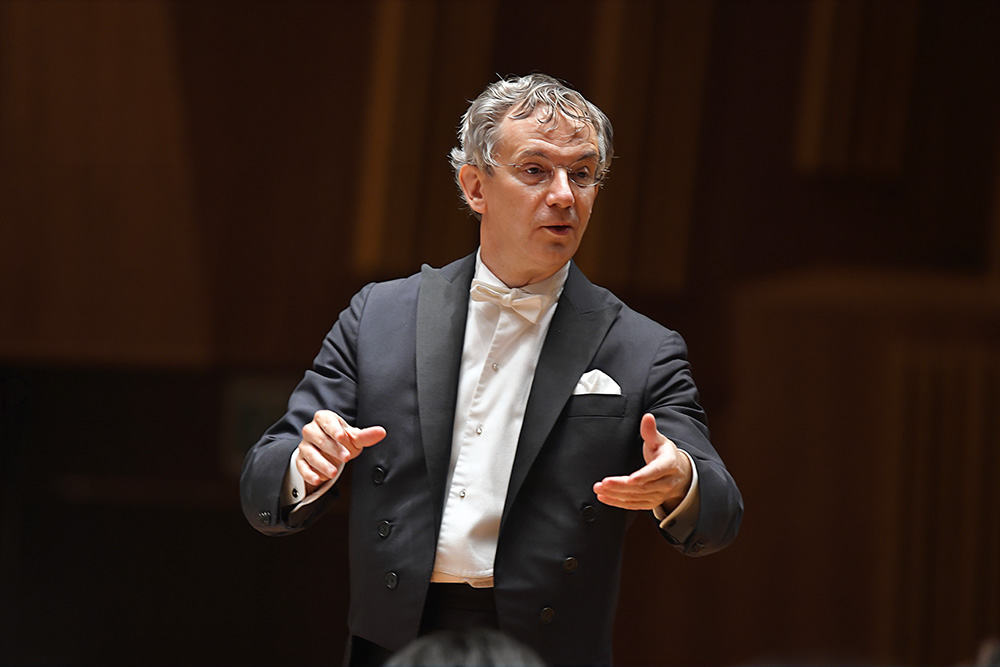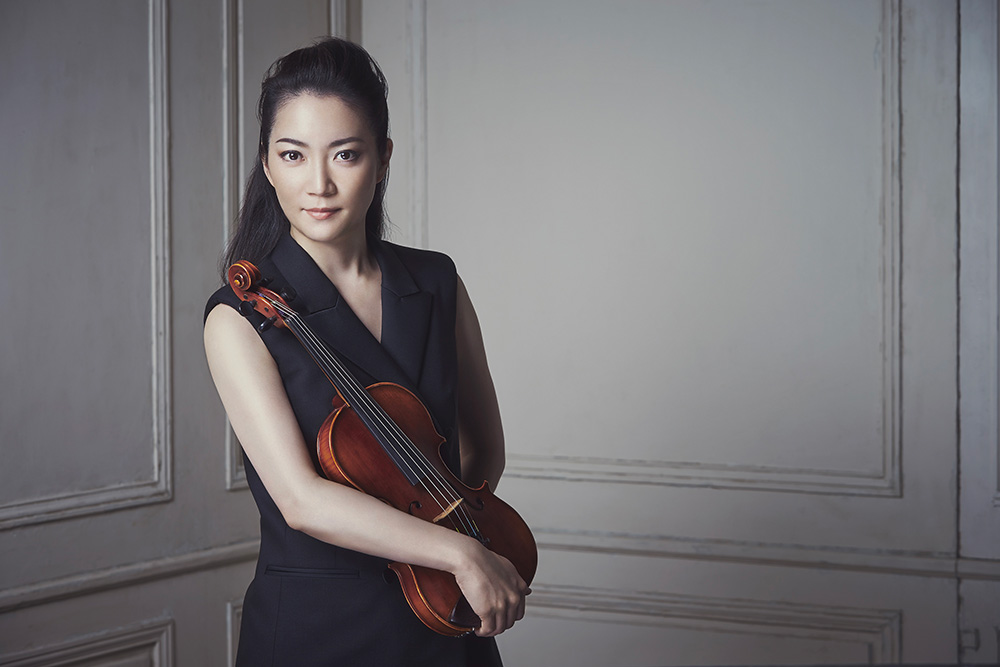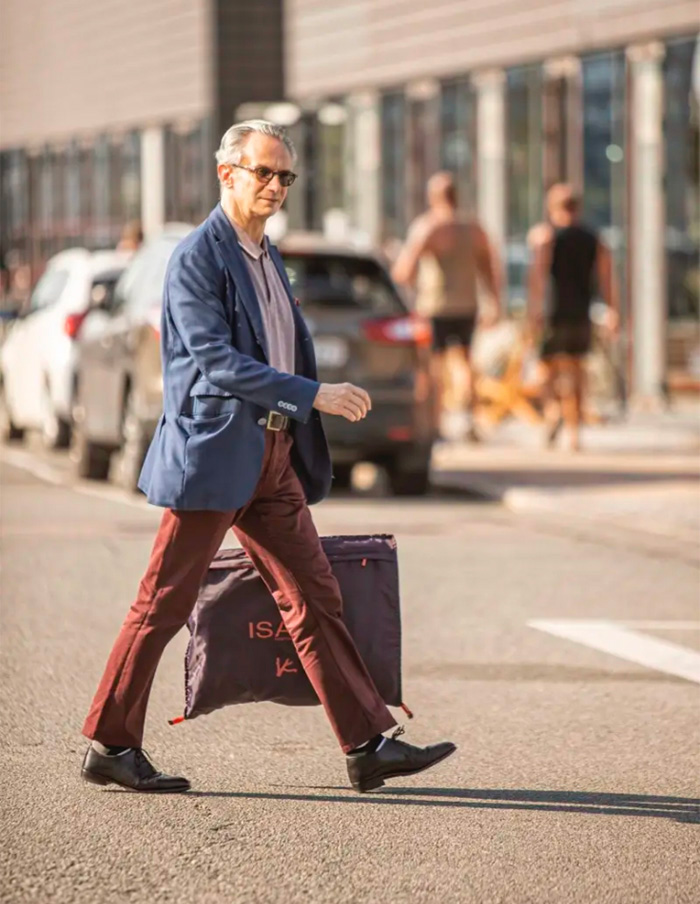NHK Symphony Orchestra, Tokyo
The concert is held under the patronage of the Japanese Embassy in the Czech Republic.
Programme
- Tōru Takemitsu: Three Film Scores
- Alban Berg: Concerto for Violin and Orchestra “To the Memory of an Angel”
- Johannes Brahms: Symphony No. 4 in E minor Op. 98
Performers
- NHK Symphony Orchestra, Tokyo
- Fabio Luisi – conductor
- Akiko Suwanai – violin
The NHK Symphony Orchestra, a broadcast orchestra affiliated to Japanese radio and television, prides itself on its reputation as the finest orchestra in Asia with a tradition spanning almost one hundred years, incorporating concerts with the likes of Herbert von Karajan, Igor Stravinsky and Lovro von Matačić. The orchestra has likewise been headed by such illustrious figures as Herbert Blomstedt, Wolfgang Sawallisch, André Previn and Paavo Järvi. All of them have shaped the sound of an ensemble whose performance was described by the British daily The Guardian as “fabulously disciplined, crisp and purposeful, and yet also expressive…” The NHK Symphony Orchestra will appear at the Prague Spring with its current Chief Conductor Fabio Luisi, joining violinist Akiko Suwanai in a programme uniting the music of Johannes Brahms, Alban Berg and a classic of Japanese composition, Tōru Takemitsu.

“I try to create something new that does not exist,” stated Fabio Luisi in an interview. A native of Genoa, Luisi has headed the NHK Symphony Orchestra since the 2022–2023 season. His inaugural concert earned a standing ovation: “It was an outstanding performance, and certainly the most immaculate of all the Verdi Requiems I’ve heard,” was the enthusiastic response from the bachtrack.com website critic Nahoko Gotoh. The exceptionally talented artist, who has a passion not only for music but also for fragrances, producing his own line of perfumes, is a seasoned globetrotter. In addition to his commitments in Japan, he also holds the posts of Music Director of the Dallas Symphony Orchestra and Chief Conductor of the Danish National Symphony Orchestra. He regularly appears with the Berlin Philharmonic, the Cleveland Orchestra, Milan’s Teatro alla Scala and New York’s Metropolitan Opera, where he was engaged as Principal Conductor in the years 2011–2017. Winner of a Grammy Award for his live recording of the last two parts of Richard Wagner’s celebrated tetralogy Der Ring des Nibelungen for Deutsche Grammophon, the maestro returns to the Prague Spring after an absence of thirty-five years!


Johannes Brahms (1833–1897) also quotes a Bach cantata in his Symphony No. 4 in E minor Op. 98, a passage which contains a musical setting of the text: “All my days which pass in suffering God ends at last in joy.” The composer wrote his last symphony in the quiet town of Mürzzuschlag in the Austrian Alps. Despite the beautiful surroundings and his auspicious situation in life, here, in 1884, he produced one of the darkest and most portentous works of the genre, with the exception of the radiant, energetic third movement, which Brahms’s friend and first biographer Max Kalbeck linked with a quotation from Goethe: “The greatest pleasure is most tempting only when it presses close to danger and enjoys the pleasantly fearful, sweet sensations in its vicinity.”
Tōru Takemitsu (1930–1996) is regarded as the most important Japanese composer of the 20th century. His oeuvre blends the influence of Japanese traditional music, European conventions and the avant-garde. One of his lifelong passions was film; he wrote the music for more than one hundred films, including the classic drama Ran by director Akira Kurosawa. “I don’t like things that are too pure and refined. I’m more interested in what’s real. And films are so full of life,” Takemitsu once remarked. At the Prague Spring you will hear the NHK Symphony Orchestra performing his Three Film Scores for string orchestra, in which he draws on his music for the films José Torres, about the life of the famous American boxer, Kuroi Ame (Black Rain) and Tanin no kao (The Face of Another). This sublime Prague Spring concert will thus open with wonderfully vivid compositions, which build incredible suspense, play with our imagination, touch our dreams, and reflect the influence of American music on Takemitsu’s work.








